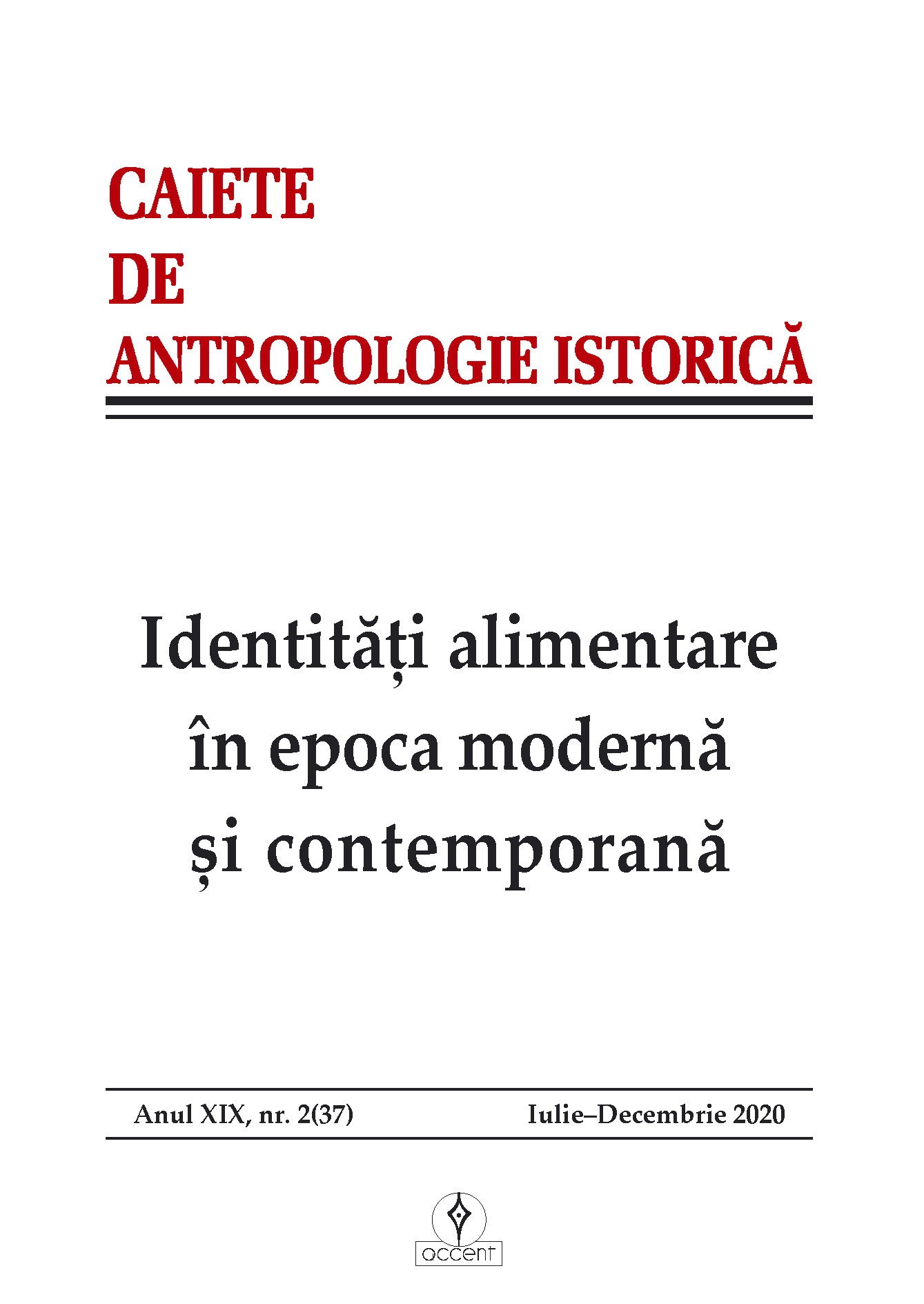Incursiuni alimentare reflectate în calendarele transilvane de la sfârșitul secolului al XIX-lea la începutul secolului al-XX-lea
Food incursions reflected in the Transylvanian calendars from the end of the 19th century to the beginning of the 20th century
Author(s): Alina Ioana BogăteanSubject(s): Cultural history, Local History / Microhistory, Cultural Anthropology / Ethnology, Culture and social structure , 19th Century
Published by: Accent Publisher
Keywords: calendars; Transylvania; eating habits; medical recommendations; medical speech; public health;
Summary/Abstract: The consulted calendars, as the main sources of information and documentation, allowed us to outline a concrete image focused on the specific food characteristics of the Transylvanian society from the end of the 19th century to the beginning of the 20th century. The traditional food was based on cereals; this was a typical aspect of the eating habits of the rural population, for whom the daily bread and the polenta were the main types of food, which combined very well with milk and eggs and other products in different kinds of dishes. Using animal fat (bacon, lard) and smoked products (sausages, ham) represented another alimentary pattern proper to the Transylvanian population. The vegetables were also highly appreciated but they were cultivated in insufficient quantities. The observance of the main rules of hygiene and conduct during the meals was intensely covered in the pages of the calendars. These rules, which were imposed through the state authorities, school and church, contributed to the change in the mentality of the population, especially in rural areas. A significant part of the negative aspects found in these sources were due to the lack of culinary education on the part of the women; the consumption of food that did not meet the physiological standards and the uneven distribution of food; the monotonous diet, the influence of fasting, the ignorance and naivety of the Romanian peasant, who sold an important part of his products, especially cereals, at ridiculous prices, and the non-compliance with a dining program. In the calendar pages, doctors sounded the alarm about the repercussions of these deficiencies: they contributed to the weakening of the body and the maintenance of epidemics, favored the excessive consumption of alcoholic beverages, influenced conception and descent and were responsible for the high mortality rate until the end of the 19th century and the beginning of the next.
Journal: Caiete de Antropologie Istorică
- Issue Year: 2020
- Issue No: 37
- Page Range: 60-75
- Page Count: 16
- Language: Romanian

